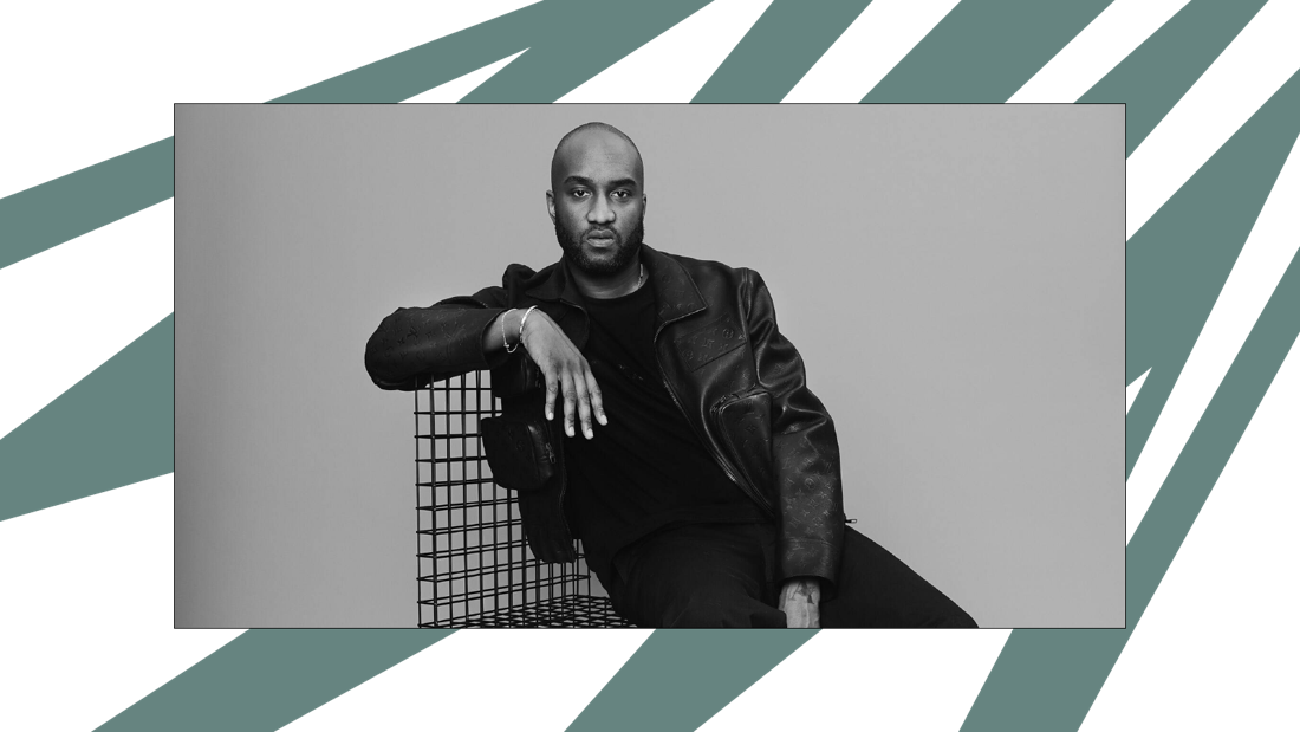It has been a whole year since the untimely passing of multidisciplinary creative Virgil Abloh (28/11/21). Much has changed in the fields he touched upon since his short-lived yet influential career—the industries he was involved in were reshaped and its approaches questioned. With boundaries he's broken and doors he opened, what can be said of Abloh's legacy, a year after his physical presence left us?
Coming from a civil engineering and architecture background, Abloh's path to becoming a cross-industry creative was never conventional. As much as his educational background, Abloh was also influenced by the cultures that surround him, from art, music, skateboarding, and many others. An internship at Fendi, a tenure at Ye's creative agency Donda, the founding of Pyrex Vision, its subsequent evolution into Off-White, appointment as the creative director of Louis Vuitton, and a seemingly endless list of collaborations—it's difficult to pin down the whole breadth of Abloh's body of work.
Of course, Abloh had his fair share of detractors—yours truly included, truthfully—some were merely gatekeepers of "old luxury", yet some had valid criticisms. Abloh's design approach, in which he "only edit anything three percent", has drawn much ire for its perceived lack of creativity. Abloh's clear reference points along with its minimal rework has earned him the status of a copycat, even though referencing existing works has always been his intention. Through his design approach, what Abloh strived to do was to recontextualize an object or cultural product into his expansive world.
In the past, Abloh has repeatedly said that Marcel Duchamp's concept of using readymade is what inspired him, yet his profession as a DJ also played into his approach. Abloh viewed works that inspired him as "readymades" to then sample and remix. Alboh's roots in various subcultures expectedly influenced his outputs, which put streetwear into the realm of luxury. It's getting more prevalent in the past decade-and Abloh was nowhere near the first to do it-but since he propelled it into the mainstream, much of the ire was directed towards Abloh. In any industry, the disruption of the status quo is sure to ruffle some feathers, especially luxury.
Amidst the criticism, Abloh managed to stay consistent and unwavering—even if the criticism came from people whose work he admired. Many a time, Abloh had managed to turn his once doubters into appreciators of his work. The menswear writer Jian DeLeon famously wrote about Abloh's earlier brand, Pyrex Vision, saying "It's highly possible Pyrex simply bought a bunch of Rugby flannels, slapped "PYREX 23" on the back, and re-sold them for an astonishing markup of about 700%." The same words later adorned the rug of Off-White's showroom, while Abloh and DeLeon struck up a genuine friendship. Even people whose works he's referenced—namely Japanese designers Nigo and Jun Takahashi, to name a few—have nothing but reverence for him.
For as many naysayers as he had, Abloh's admirers are greater in number. He commanded hype, respect, and enthusiasm across the globe-anything he touched turned into a hot commodity. Through his collaborations, Abloh also ventured into fields like product design, interior design, even automotive design.
For many, Abloh represented "one of us", a genuine fan of the collective cultures that people on the same wavelength all grew up with. Abloh often said, "Everything I do is for the 17-year-old version of myself," a testament to his enduring youthful enthusiasm. A main concept in his approach, "Tourists vs Purists", further elaborated that a drive to always see things from a fresh perspective was crucial to him. "It's my organizing principle for my point of view when I make things. A tourist is someone who's eager to learn, who wants to see the Eiffel Tower when they come to Paris. The purist is the person who knows everything about everything," stated Abloh to Vogue. Above all, Abloh was remembered across industries as a kind and positive person—who believed in carving a path for those who came after him.
In his tragically short career, Abloh accomplished milestones of numerous lifetimes. He fought a long battle against cancer in silence, while still working at full speed. Perhaps, he was aware of his coming mortality, but truthfully, the pace in which he worked was always on a different level. Even if he is no longer with us, his presence can still be felt-in numerous collaborations that have only been materialized today, scholarships and foundations, but most importantly his way of thinking. Abloh believed in "open-sourcing" the know-how of what he did, so that future generations can follow the paths he opened more accessibly.
After his debut runway show at Louis Vuitton—a historic feat in itself—Abloh posted a photo of him walking down the rainbow-colored runway with the caption, "you can do it too..." He legitimized what his and the younger generation always felt were "cool" into spaces where they were not accepted before, blurred boundaries between disciplines, and provided the blueprint to do so. After Abloh opened the doors, now it's up to the next generation to let more people in.
(alm/tim)


